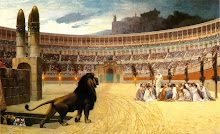 OKLAHOMA CITY-The first House bill filed for the 2009 legislative session seeks to clarify where the line is drawn on allowing religion in public schools, but opponents say the bill is an ideologically driven measure that will create more problems than solutions.House Bill 1001, authored by Oklahoma City Republican Reps. Sally Kern and Mike Reynolds, is titled the “Religious Viewpoints Antidiscrimination Act.”
OKLAHOMA CITY-The first House bill filed for the 2009 legislative session seeks to clarify where the line is drawn on allowing religion in public schools, but opponents say the bill is an ideologically driven measure that will create more problems than solutions.House Bill 1001, authored by Oklahoma City Republican Reps. Sally Kern and Mike Reynolds, is titled the “Religious Viewpoints Antidiscrimination Act.”The bill allows students to express religious viewpoints in the classroom or in assignments without discrimination and prohibits students from being penalized or rewarded for the religious content of their work.The measure also allows religious groups or clubs to have the same access to school facilities as secular groups and requires school districts to adopt policies on student speakers that does not discriminate against expressions of religious viewpoints.Reynolds said the goal of the bill is not to create any new policies for districts to follow, but simply to codify into law what already has been decided by the U.S. Supreme Court regarding religion in schools.
“There’s nothing new about this bill,” Reynolds said. “It makes it very clear that we agree with the Supreme Court.“The second thing it does is provide for a model policy for school districts to adopt so they don’t have to hire lawyers to come up with these policies.”If a district adopts the model policy contained in the bill, Reynolds said the state attorney general’s office would be required to defend the district if it were sued over the policy.But some lawmakers, including Rep. Ed Cannaday, a former teacher and school administrator in eastern Oklahoma, described the measure as a “cotton candy bill.”“It’s tasteful and you enjoy it, but it does nothing for you,” said Cannaday, D-Porum.Cannaday said the bill also could open the door for radical religious groups to demand equal time in Oklahoma schools.“What’s more dangerous is that this cotton candy has been laced with arsenic,” Cannaday said. “The radical, non-Christian fringe groups who want to undermine our faith will use this to disrupt and to distract from our spiritual base.”
A nearly identical bill last session passed the House and Senate, but was vetoed by Gov. Brad Henry.In his veto message, Henry said students already are allowed to express their faith and that the bill could subject school officials to “an explosion of costly and protracted litigation.” “While well intended, this legislation is vaguely written and may trigger a number of unintended consequences that actually impede rather than enhance such expression,” Henry wrote.Kern, also a former public school teacher, disagreed with Henry’s take on the bill, saying the measure would provide more clarity for schools.“That is totally bogus,” Kern said of Henry’s veto message. “I doubt he even read the bill.”Dr. Richard Broughton, an associate professor of zoology at the University of Oklahoma and the president of Oklahomans for Excellence in Science Education, said he opposed the bill last year and plans to do so again this year. Broughton thinks the bill is an attempt to inject religion into science classrooms, a move the group adamantly opposes.“We think that only science should be taught in science classrooms,” Broughton said. “It doesn’t deal with specific science or content, but the implications are pretty clear about what kind of things could happen if the bill passes.”With Republicans now controlling both the Oklahoma House and Senate, Broughton said he fears more bills will be introduced that are driven by ideology than good public policy.“I really hope we don’t see them, but we’re concerned,” Broughton said. “Those kinds of bills have died in the past, but could re-emerge in the political environment we have now.”
As in the days of Noah...


























.bmp)
No comments:
Post a Comment